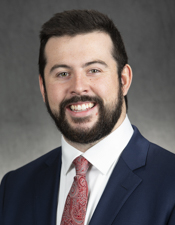Working group urged to study training practices, certification for 911 dispatchers
A 911 dispatcher receiving a frantic call for help needs to quickly assess what’s happening and make the right decision on what needs to be done.
“Dispatchers are essential to public safety,” says Rep. Spencer Igo (R-Grand Rapids).
He sponsors a proposal to establish a statewide working group to recommend minimum training and set continuing education standards for certification of 911 telecommunicators.
The House Public Safety and Criminal Justice Reform Finance and Policy Committee held over HF515, as amended, Thursday for possible omnibus bill inclusion. The companion, SF565, sponsored by Sen. Bill Ingebrigtsen (R-Alexandria), awaits action by the Senate Finance Committee.
The working group would be organized by the Department of Public Safety and include representatives of organizations that operate and use the 911 response system in the state.
“Our dispatchers need to know how to keep us all safe,” Igo said. “And I can’t think of a better way than for a group of dispatchers to come together and work together to create standards and training procedures that work for them.”
The working group would:
- recommend a statutory definition of 911 telecommunicators;
- recommend minimum training and continuing education standards for certification of 911 telecommunicators;
- recommend standards for certification of 911 telecommunicators;
- recommend funding options for mandated 911 telecommunicator training; and
- provide other recommendations the working group deems appropriate.
A report would be due to the Legislature by Jan. 15, 2022.
Emergency 911 dispatchers are the “backbone of the public safety system,” said Darlene Pankonie, communications center manager of the Washington County Sheriff’s Office Communication Center.
“There is not a law enforcement, fire, or EMS incident that occurs without their support and vital communication,” she said. “These dedicated individuals, known as the first first responders, have waited decades to be officially recognized as public safety responders, to be given an adequate training foundation to support their necessary expansive knowledge base, to be certified for their multifaceted skill set, and finally, to be provided the benefits to sustain and protect them for their life-saving service to the community.”
The bill is supported by the Minnesota Fire Association Coalition, Metropolitan Emergency Services Board and National Association on Mental Illness - Minnesota.
NAMI specified its support was based on the appointment of a mental health crisis team provider to the working group, which was added by an amendment from Igo.
Related Articles
Search Session Daily
Advanced Search OptionsPriority Dailies
Speaker Emerita Melissa Hortman, husband killed in attack
By HPIS Staff House Speaker Emerita Melissa Hortman (DFL-Brooklyn Park) and her husband, Mark, were fatally shot in their home early Saturday morning.
Gov. Tim Walz announced the news dur...
House Speaker Emerita Melissa Hortman (DFL-Brooklyn Park) and her husband, Mark, were fatally shot in their home early Saturday morning.
Gov. Tim Walz announced the news dur...
Lawmakers deliver budget bills to governor's desk in one-day special session
By Mike Cook About that talk of needing all 21 hours left in a legislative day to complete a special session?
House members were more than up to the challenge Monday. Beginning at 10 a.m...
About that talk of needing all 21 hours left in a legislative day to complete a special session?
House members were more than up to the challenge Monday. Beginning at 10 a.m...
